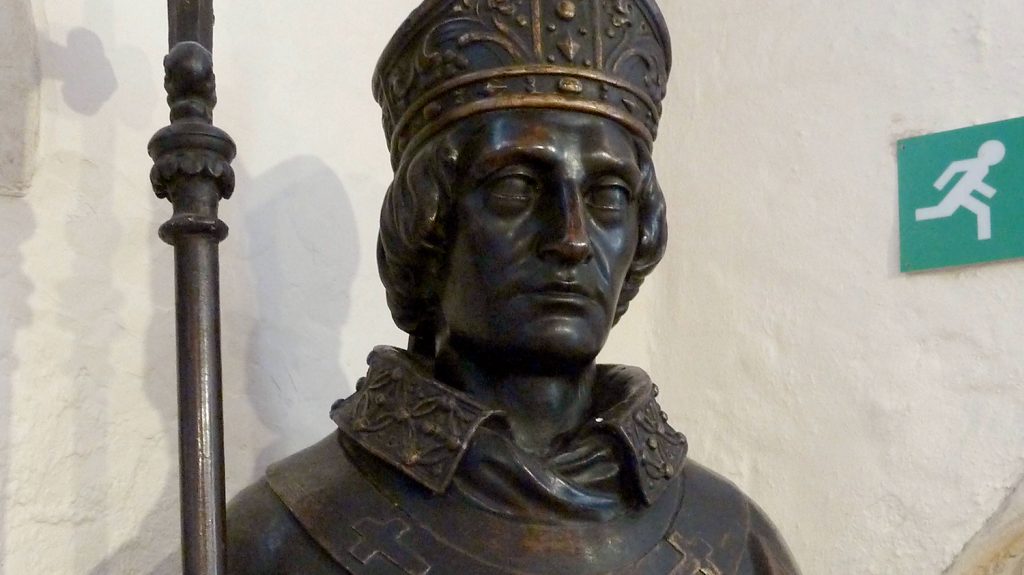Stephen Langton (above), biblical scholar and Archbishop of Canterbury, died today in 1228. He is famous for dividing the books of the Bible into the chapters we now know. It was another 300 years before someone divided the chapters into verses, but in the meantime, Langton and other scholars split each chapter into seven sections, numbered A to G, so our John 3:16 would be their John 3C. There were lots of conflicting chapter schemes in medieval times, but Langton’s scheme succeeded because the busy manuscript workshops of Paris took it up, spreading his work to scholars, monasteries and libraries across Europe.
Meanwhile, Thomas Cranmer, also Archbishop of Canterbury but in another time, annulled King Henry VIII’s marriage to Anne of Cleves (his fourth wife) today in 1540. It was just six months since he had taken them through their wedding vows. The marriage didn’t get off to a good start. After the wedding night, Henry reported, ‘I liked her before not well, but now I like her much worse’. Cranmer pronounced the marriage void on the grounds that it had never been consummated. Henry and Cranmer were now a well-oiled annulment machine – this was their third time round, as they had already voided Henry’s marriages to Anne Boleyn and Catherine of Aragon.
Today in 1900, 45 Christian missionaries, Catholic and Protestant, including children, were killed in the Taiyuan Massacre, during the Boxer Rebellion in China. The rebellion, a revolt against European imperialism and religion, saw the murder of Christians across the whole of northern China. The massacre in Taiyuan was especially shocking, as the governor of Shanxi province gathered the Christians, ensured they could not escape, and had them beheaded before him without notice.
Ten statues depicting martyrs of the 20th century were unveiled above the Great West Door of Westminster Abbey today in 1998. The statues stand in niches created half a millennium earlier, which had remained empty due to the English Reformation’s aversion to images. The statues, which include Dietrich Bonhoeffer and Martin Luther King, were carved in French limestone by sculptors who worked from whatever photographs or documents had survived for each of the martyrs. They honour all those who died for their Christian faith in the 20th century, such as the Taiyuan missionaries – see above.
On this night in 1984, England’s York Minster was struck by lightning as a divine protest, no doubt, against the appointment of the controversial David Jenkins as the new Bishop of Durham. Repairs cost well over £2 million. The 16th-century rose window cracked into 40,000 pieces without a single one falling out. Mysterious ways.
Image: Linda Spashett/Storye Book
